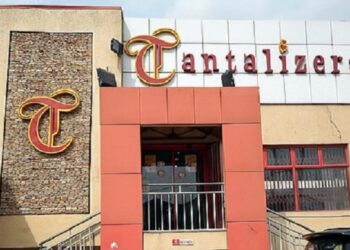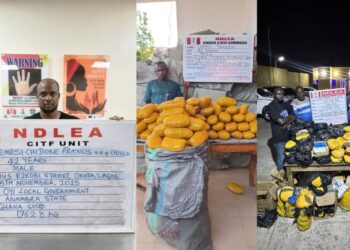Nigeria’s International Money Transfer Operator (IMTO) inflows declined by $193.14 million in the first quarter of 2025.
Data from the CBN’s quarterly statistical bulletin shows that inflows fell to $888.39 million in Q1 2025, compared to $1.08 billion in the same period of 2024.
This represents a 17.8% decline year-on-year and highlights the fragile momentum of diaspora remittances into Africa’s largest economy.
Although lower than last year, inflows in the first quarter of 2025 still outpaced the $770.23 million recorded in Q1 2023, suggesting that remittance levels remain elevated compared to pre-2024 levels.
However, the sharp drop from last year underlines the challenge facing policymakers in sustaining inflows amid global economic uncertainty and domestic foreign exchange pressures.
What the data shows
The monthly data shows a consistent slowdown across January, February and March when compared with 2024 figures.
In January 2025, inflows were $281.97 million, down from $390.86 million in January 2024, reflecting a 27.9% fall.
February 2025 recorded $288.82 million, compared to $326.91 million in February 2024, a 11.6% decline.
March inflows stood at $317.60 million, lower than $363.76 million in the same month of 2024, a 12.7% drop.
When measured against 2023, however, inflows in February and March 2025 showed some resilience, outpacing the $195.23 million and $279.79 million posted in those months, respectively. This indicates that while momentum has slowed relative to 2024’s surge, remittance flows are not yet collapsing.
What you should know
Nairametrics earlier reported that Nigeria’s foreign exchange inflows through IMTOs rose in 2024, reaching a total of $4.76 billion.
This was a significant 44.5% increase from the $3.30 billion recorded in 2023.
The surge in IMTO inflows was reported to be closely tied to the reforms introduced by the CBN under Governor Olayemi Cardoso since his assumption of office in September 2023.
In January 2024, the CBN issued a circular that removed the previous cap on exchange rates quoted by IMTOs.
- Before the circular, IMTOs were required to quote rates within a permissible range of -2.5% to +2.5% around the previous day’s closing rate of the Nigerian Foreign Exchange Market.
- By the end of January 2024, the apex bank further released revised guidelines for the operations of IMTOs. The apex bank increased the application fee for an IMTO licence from N500,000 in 2014 to N10 million in the revised guidelines. This is an increase of about 1,900% in about 10 years.
- The CBN also established a minimum operating capital requirement for IMTOs at $1 million for foreign entities and an equivalent amount for local IMTOs.
- Also, IMTOs were barred from purchasing foreign exchange from the domestic market to fulfil their obligations.
- However, with another circular, it appears that this ban has been lifted, and IMTOs can now trade on the official market.
- The apex bank earlier reached an agreement with IMTOs to set up a Collaborative Task Force to double remittance inflows into the country. The task force formed to double remittance inflows into Nigeria reports directly to Olayemi Cardoso, the Governor of the CBN.
IMTO inflows continue to be a vital source of foreign currency for Nigeria, supporting families, businesses, and the broader economy amid ongoing FX market challenges.
The decline in Q1 2025 comes at a delicate time for the CBN, which has repeatedly emphasised remittances as a critical pillar of foreign exchange supply.
Diaspora inflows are seen as vital in easing pressure on Nigeria’s reserves, complementing oil earnings and supporting naira stability. A sustained slowdown risks undermining these efforts, especially as demand for foreign exchange remains high for imports, external debt servicing and capital repatriation.
Global headwinds may also be playing a role in the decline. Inflationary pressures in advanced economies where the Nigerian diaspora live and work, as well as tighter labour market conditions, may have reduced disposable income available for remittances.
Domestically, informal channels continue to pose competition to official IMTO flows, limiting the CBN’s ability to capture the full scale of remittance activity.




















